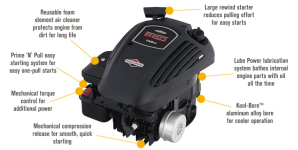Few of us share you experience with helicopter engine oils. Few of us have the slightest need for that knowledge.
When I was growing up -- probably about the same time you were growing up -- there was none of this "change your oil ever 3,000 miles" bull****. Even to this day, no car manufacturer recommends changing the engine oil every 3,000 miles, or even twice that.
However, good advertising requires getting people worked up over something or other, and the oil companies have latched onto this "every 3,000 miles" mantra as a way to sell their stuff.
It literally makes no difference what sort of oil you use to soak a foam air filter with. It isn't there to lubricate anything. As long as it remains in the foam and catches the dust particles, it's doing its job, whether it's premium-priced air filter oil or mineral oil from Walmart.
Done the testing and yes it does make a difference .
And yes engine oil works, old kitchen oil works , Wd40 would probably work, but filter oil works BETTER and washes out BETTER and has less effect on the life of the foam so it is better .
And if you are going to make an informed decision upon oil change intervals then you do need that knowledge or at very least an understanding of engine wear and oil degregation otherwise you are just shooting in the dark at a target you can not see with a weapon you don't know how to use.
and FWIW I taught oil, lubricants, greases & cutting fluids to TAFE students for near a decade
Engines of yesteryear were grossly over engineered because running engines on test beds till failure is very expensive and the testing is even more expensive compared to making the blocks 1/2" thicker & pistons 4 times the weight of modern pistons.
Modern engines are substantially under engineered to last a finite time and be just good enough to do the job which is why they are lighter .
Oil change intervals are determined by running the engines on test beds and analysing the oil & exhausts , plotting contaminants & break down against operating hours.
Every curve that results will have a point of inflection and for aircraft, the lowest hour POI becomes the oil change interval
For cars it is the most common POI that is the interval
Now the down side of that is no one ever runs their engines exactly the same as the test bed engines so the change interval is an extrapolation of the results designed to ensure the engine makers do not end up with a pile of warranty claims ( hopefully ) .
Now if that means that you end up changing the oil before it is totally worn out then yes THEY ARE OUT TO GET YOU .
So you don't know the theory , you don't have the knowledge yet you can state without fear of correction that the intervals are all BS
That is an interesting mind set you have there

